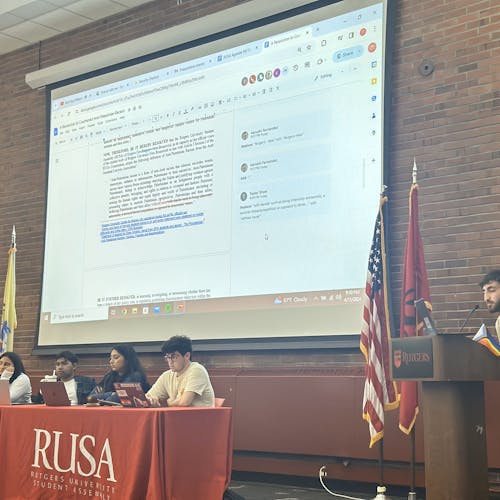New Jersey graduates may see new film jobs through tax credit law

A bill signed by Gov. Phil Murphy (D-N.J.) this summer, which restored $85 million in film and television tax credits statewide, could help Mason Gross School of the Arts students and other Rutgers filmmakers find jobs.
The Garden State Film and Digital Media Jobs Act is a five-year tax credit program that gives tax incentives to those making film and video content in the state, according to NJTV News. It caps incentives at $75 million a year for film and TV productions and $10 million for digital and includes 30 percent tax credit for TV and film and 20 percent for digital media. To qualify, the majority of what a company creates or who a company employs must be in or from New Jersey.
George Stauffer, dean of the Mason Gross School School of the Arts, said that this could be good for the state's film economy, and that some companies might have never considered doing work in New Jersey before, due to a lack of funding.
“One anticipates that this bill will prompt film and television productions to come to New Jersey,” he said.
It also opens doors for Rutgers students interested in the industry.
Patrick Stettner, director of the Rutgers Filmmaking Center, said that previously students generally looked for work in New York City, but due to the potential increase of in-state production they will have the opportunity to work in their own backyard.
He explained that production tax credits in states like New York and North Carolina, Vancouver and Canada, have been successful in the past, and that before a company decides where to shoot, it looks at a state's tax credits.
“Production companies are heavily incentivized to go to states that have those tax credits. Without it, NJ loses out,” Stettner said.
Bringing production crews into the state could also mean hiring more local talent — such as Rutgers graduates — Stauffner said.
That could also help kickstart a filmmaker's early projects, he said.
“A number of our graduating filmmaking students are looking forward to making their first feature film,” Stauffner said. “Having this tax credit program could make financing of those projects more feasible.”
There may be some pitfalls, too. For example, the Office of Legislative Services found that the tax credits could cost the state $425 million in lost revenue, according to the office's fiscal estimate.
“It’s basically a give out to the special interests," said Sen. Joe Pennacchio (R-N.J.) to NJTV News. "Money that could be much better spent, especially on things like education, special education, things like that. The Office of Legislative Services in a financial analysis they said we can’t even quantify it.”
The verdict remains out, but will be seen over the next five years as the program runs its course.
“When those industries thrive, the students thrive,” Stauffner said.



